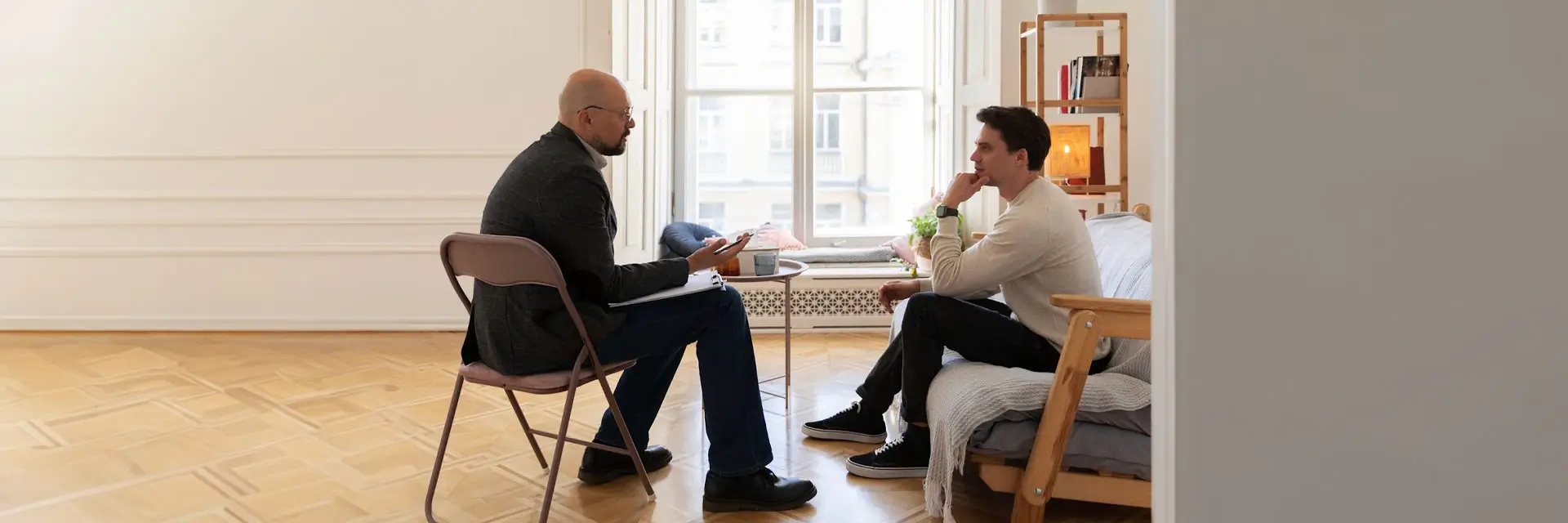A strong support system and a stable environment can be the difference between long-term sobriety and relapse. Men seeking lasting recovery often benefit from specialized sober living arrangements that meet their unique needs. By offering structured support and camaraderie, sober living homes for men are essential in helping individuals maintain sobriety and rebuild their lives.
Understanding the Importance of Sober Living for Men
Maintaining sobriety can be challenging, especially after finishing a treatment program. Studies show that nearly 85% of people who complete a drug or alcohol treatment program relapse within a year if they lack a supportive, structured place to continue their recovery. Sober living homes give men a safe space to practice sobriety without returning to old, triggering environments.
Sober living for men is more than just avoiding alcohol; it’s about building healthy habits, independence, and a supportive community. These homes provide structure to help men learn how to balance work, relationships, and responsibilities while staying free from substance-related temptations.
What is Sober Living for Men?
Sober living homes are places where men can live after treatment to ease the move to an independent life. These homes are particularly beneficial for men who need a stable environment focused on sobriety. While sober living homes do not provide intensive treatment, they offer resources, rules, and peer support to help men maintain sobriety.
Sober living homes for men offer peer support, accountability, and daily routines to help prevent relapse. When comparing rehab vs sober living, these homes focus on creating a strong community where men can build life skills that support long-term recovery.
Benefits of Sober Living for Men
Sober living homes for men offer more than just a place to stay. They provide a supportive space where residents can work on self-improvement, handle daily responsibilities, and strengthen their resistance to addiction. Some key benefits include:
Recovery Focused Environment
A sober living home surrounds men with like-minded peers, creating a recovery-focused environment that’s hard to find elsewhere. According to a 2011 study in the Journal of Psychoactive Drugs, 73% of people who stayed in sober homes remained sober after 18 months.
Structured Support
Sober-living homes have structured routines and rules to help residents avoid behaviors that can lead to relapse. With guidelines like regular curfews and substance testing, these rules are set up to keep men focused on long-term sobriety.
Community and Accountability
One of the unique aspects of sober living for men is the strong sense of brotherhood. It creates a space where men can bond, share their experiences, and support each other, helping everyone grow and stay committed to their recovery.
Key Features of a Sober Living Home for Men
Each sober living home has its own approach, but most provide essential features for men looking for a safe and supportive space. Here are some common characteristics of these homes:
- Rules: These homes implement rules such as curfews, house chores, and regular attendance at support meetings. These guidelines promote discipline and responsibility.
- Accountability: Residents are accountable for their actions. Frequent drug testing and mandatory attendance at group sessions help keep everyone on track.
- Support: The presence of support groups and professional counselors is often standard. Men are encouraged to seek guidance when needed, creating a culture of open communication.
Community Integration
Some sober living homes offer programs like job training or volunteer work to help men build skills and confidence, making it easier for them to live independently.
Access to Therapy and Counseling
Many homes provide access to therapy sessions to help men address underlying issues like trauma or stress, which may contribute to relapse. Therapy options vary, but they typically include cognitive behavioral therapy (CBT) and peer-support counseling.
Family Involvement
Many sober living homes recognize the importance of family in recovery. They often offer family counseling and visitation days, allowing loved ones to stay involved and offer additional support.
How to Choose the Right Sober Living Home for Men
With numerous sober living homes available, it’s essential to choose one that aligns with individual needs and goals. Consider these factors when choosing the right sober living home for men:
Cost and Insurance
While a few sober living homes do accept insurance, many will require payment from your funds. Research financial options and insurance coverage before making a decision.
Location
Location is another significant factor. Some men prefer sober living homes close to their families or workplaces, while others may choose homes far from familiar environments to minimize triggers.
- Community: Choose a home that offers a strong community culture. Look for places that encourage camaraderie and peer support.
- Safety: The facility’s safety protocols, such as strict substance policies and security measures, should meet individual safety requirements.
- Programs: Look for homes with specialized programs like vocational training or life-skills workshops that align with personal goals.
Accreditation and Reputation
It’s vital to choose a reputable sober living home. Accredited facilities often adhere to higher standards of care and safety, which can improve outcomes for residents.
Long-Term Support
Some sober living homes offer extended support, even after residents transition to independent living. This may include alumni programs, follow-up sessions, or counseling, helping residents maintain their progress.
FAQs
Q: What is sober curious for men?
A: The “sober curious” movement for men involves exploring sobriety without necessarily committing to lifelong abstinence. Men who are sober and curious may choose to reduce alcohol consumption to improve health, mental clarity, and relationships. This mindful approach allows men to evaluate the role alcohol plays in their lives without pressure.
Q: What does sobriety do to your brain?
A: Sobriety greatly improves brain health by boosting memory, focus, and emotional balance. Over time, the brain heals itself, which helps lower anxiety, depression, and other alcohol-related issues. This recovery process brings better mental clarity and decision-making, strengthening overall brain function and supporting lasting mental health.
Q: Can your brain recover from long-term alcohol abuse?
A: Yes, the brain can heal after years of alcohol use, though it takes time. Brain cells grow back, repairing areas harmed by alcohol. Staying sober, eating well, and getting mental health support help restore clear thinking and emotional balance, even after long-term alcohol use.
Conclusion
Sober living for men provides a supportive and structured environment that is invaluable for long-term recovery. By offering routine, accountability, and a community of like-minded peers, these homes lay the groundwork for a successful transition into independent living.
Choosing the right sober living home requires careful consideration of cost, location, community, and programs. Ultimately, the right sober living environment can be a powerful stepping stone toward sustained sobriety and a fulfilling life beyond addiction.
For more resources on sober living for men, visit BHouses. Explore how BHouses can support your journey with structure, community, and accountability. Discover a sober living home where lasting recovery and a brighter future come first.










